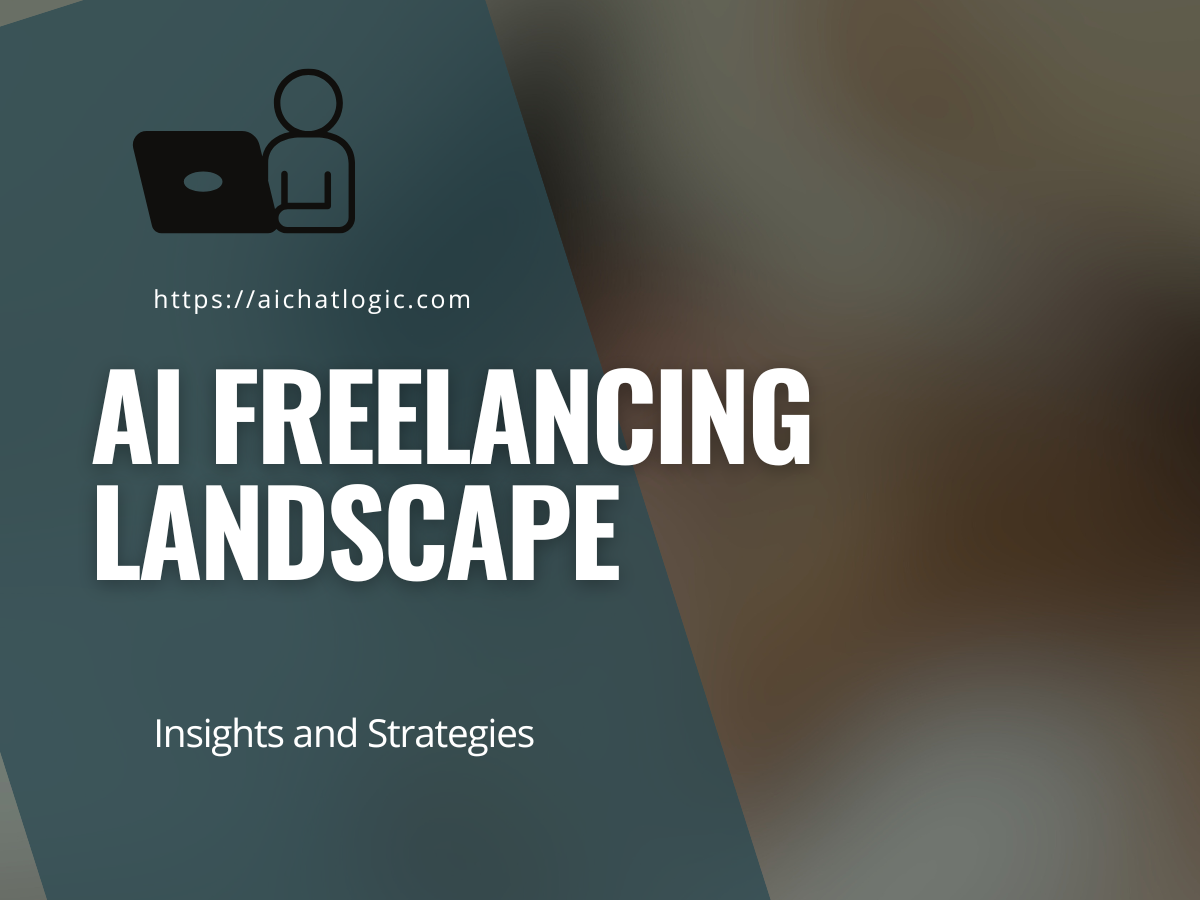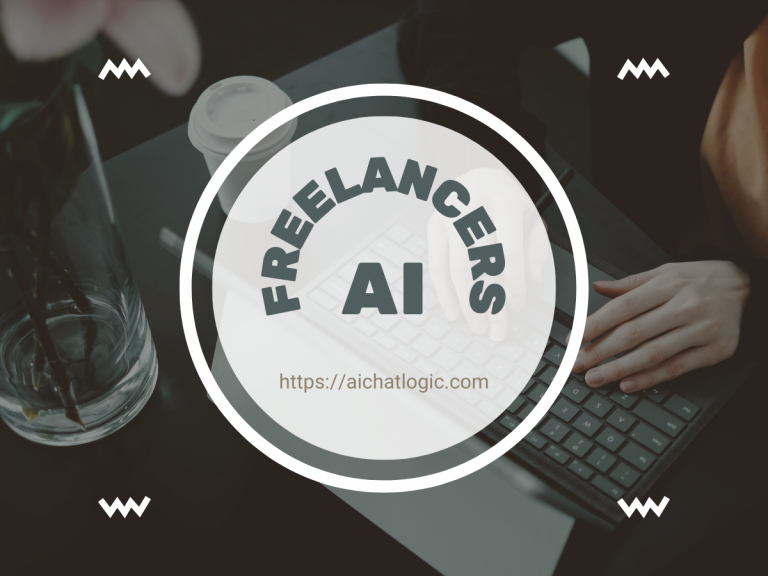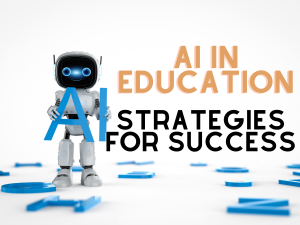1. Introduction: The Rise of AI Freelancing
In today’s rapidly evolving digital landscape, freelancing has emerged as a popular career choice. With the integration of artificial intelligence (AI) in various industries, the field of AI freelancing has witnessed remarkable growth. This article explores the insights and strategies required to navigate the AI freelancing landscape successfully.
2. Understanding the AI Freelancing Landscape
AI freelancing refers to the practice of leveraging AI technologies and tools to provide specialized services as an independent professional. It involves using AI algorithms, machine learning, and automation to deliver high-quality and efficient solutions to clients. AI freelancers work across diverse domains, including data analysis, natural language processing, virtual assistance, and more.
3. Benefits of AI Freelancing for Professionals
3.1 Expanded Opportunities and Global Reach
AI freelancing offers professionals the opportunity to work with clients from around the world. By harnessing digital platforms and AI-powered marketplaces, freelancers can access a global client base, leading to increased exposure, diverse projects, and potential for higher earnings.
3.2 Enhanced Efficiency and Productivity
AI integration enables freelancers to automate repetitive tasks, optimize workflows, and improve overall efficiency. With AI tools, professionals can streamline project management, data analysis, and decision-making processes, allowing them to focus on higher-value tasks and deliver exceptional results within shorter timeframes.
3.3 Skill Development and Innovation
Engaging in AI freelancing allows professionals to continually develop their skills and stay at the forefront of technological advancements. By working on AI-driven projects, freelancers can acquire new knowledge, expand their expertise, and foster innovation in their respective fields.
4. Strategies for Success in AI Freelancing
4.1 Identify and Leverage Niche Expertise
To stand out in the competitive AI freelancing landscape, it’s crucial to identify and cultivate niche expertise. Specializing in a particular domain or industry vertical allows freelancers to position themselves as sought-after experts, attracting clients who value specialized knowledge and skills.
4.2 Build a Strong Online Presence
Establishing a strong online presence is essential for success in AI freelancing. Creating a professional website, optimizing social media profiles, and showcasing a portfolio of relevant projects can help freelancers build credibility, attract clients, and demonstrate their AI capabilities effectively.
4.3 Cultivate a Network and Collaborate
Networking with fellow AI professionals and collaborating on projects can lead to valuable opportunities. Participating in industry events, joining AI-focused communities, and engaging in knowledge-sharing activities enable freelancers to expand their network, gain insights, and foster collaborative partnerships.
4.4 Stay Updated on AI Trends and Tools
AI is a rapidly evolving field, and staying updated on the latest trends and tools is crucial for AI freelancers. Continuous learning through online courses, attending webinars, and following industry thought leaders helps professionals stay abreast of emerging technologies and maintain a competitive edge.
5. Navigating Challenges in AI Freelancing
While AI freelancing offers numerous benefits, it also presents challenges that professionals need to navigate effectively.
5.1 Addressing Data Privacy and Security Concerns
AI freelancers often handle sensitive client data, making data privacy and security a top priority. Implementing robust security measures, utilizing encrypted communication channels, and adhering to data protection regulations are vital to maintain client trust and confidentiality.
5.2 Adapting to Changing AI Landscape
As AI technologies continue to advance, AI freelancers must adapt and upgrade their skills accordingly. Remaining agile, embracing lifelong learning, and being open to new tools and methodologies ensure continued relevance and competitiveness in the AI freelancing landscape.
5.3 Managing Client Expectations
Effectively managing client expectations is essential for successful AI freelancing. Clearly communicating project scope, deliverables, and timelines, and providing realistic assessments of AI capabilities and limitations help establish a strong foundation of trust and ensure client satisfaction.
6. Tools and Technologies for AI Freelancers
AI freelancers can leverage a range of tools and technologies to enhance their productivity and deliver exceptional results. Some popular tools include:
- AI-powered data analysis and visualization platforms
- Natural language processing libraries for text analysis and sentiment analysis
- Machine learning frameworks for building predictive models
- Virtual assistant tools for automating client communication and support
Exploring and utilizing these tools based on specific project requirements can significantly amplify the capabilities of AI freelancers.
7. FAQs about AI Freelancing
Q1: How can I find AI freelancing opportunities?
Finding AI freelancing opportunities can be accomplished through various channels. Online platforms and marketplaces, industry-specific job boards, and networking within AI communities are effective ways to discover relevant projects and connect with potential clients.
Q2: What skills are essential for AI freelancing?
Key skills for AI freelancers include programming languages such as Python or R, data analysis, machine learning, and domain expertise in the chosen field. Additionally, strong problem-solving abilities, communication skills, and adaptability to new technologies are valuable for success in AI freelancing.
Q3: How do I determine pricing for AI freelancing projects?
Pricing for AI freelancing projects depends on factors such as project complexity, time commitment, and the freelancer’s level of expertise. Conducting market research, considering the value delivered, and benchmarking against industry standards can help in setting competitive and fair pricing.
Q4: Is a degree in AI or data science necessary for AI freelancing?
While a degree in AI or data science can be advantageous, it is not an absolute requirement for AI freelancing. Practical skills, relevant experience, and a strong portfolio demonstrating AI capabilities often hold more weight in securing freelance opportunities.
Q5: How can I showcase my AI skills to attract clients?
Creating a comprehensive and visually appealing portfolio showcasing AI projects and their impact can effectively demonstrate your AI skills to potential clients. Additionally, sharing case studies, testimonials, and participating in relevant AI forums and communities can help establish credibility and attract clients.
8. Conclusion
AI freelancing presents exciting opportunities for professionals to leverage AI technologies, expand their skills, and thrive in the digital economy. By understanding the AI freelancing landscape, adopting effective strategies, and staying updated on emerging trends, professionals can navigate the challenges and unlock the potential for success in AI freelancing. With dedication, continuous learning, and a proactive approach, AI freelancers can position themselves at the forefront of this dynamic and rapidly evolving field.













+ There are no comments
Add yours